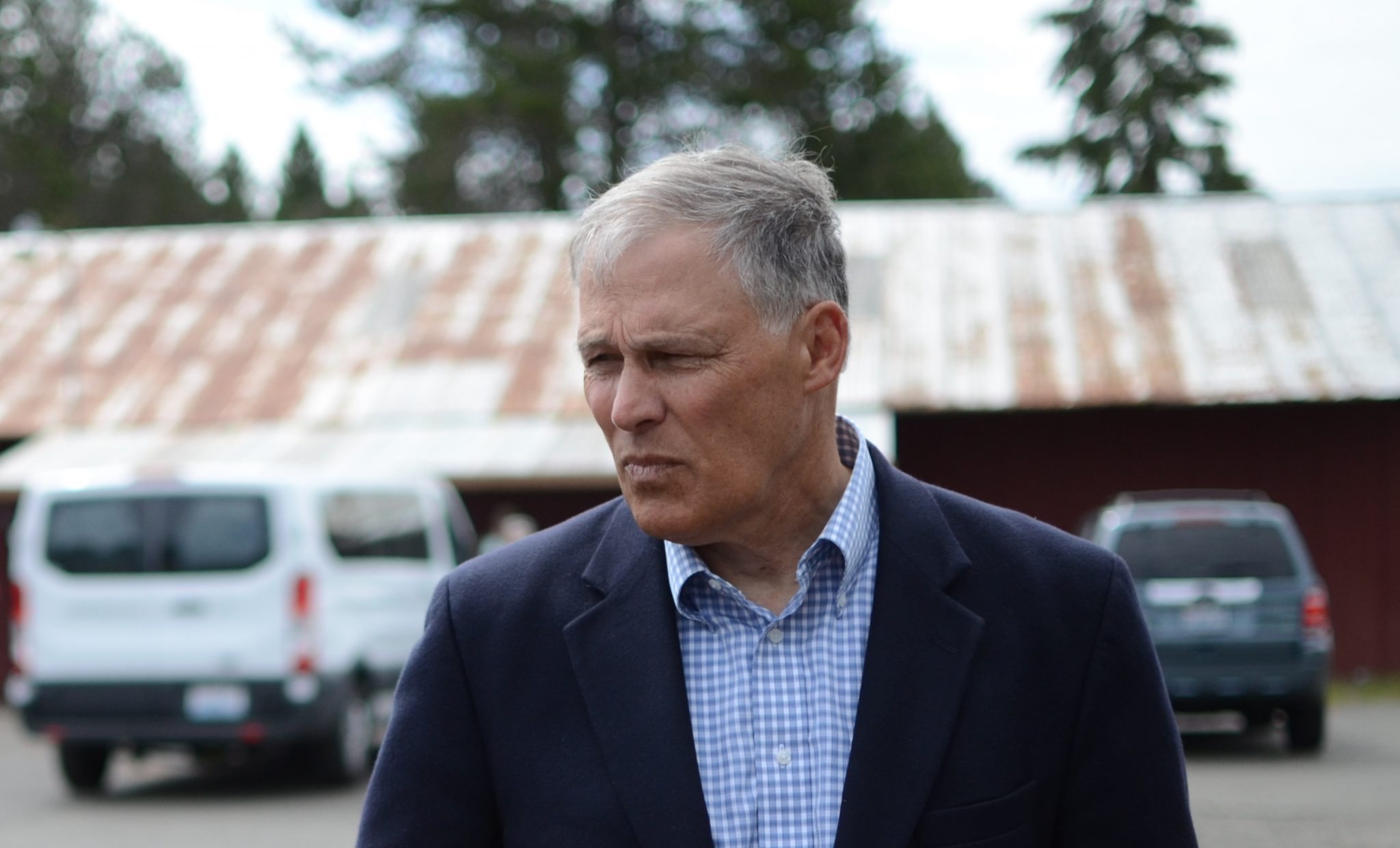“We’re asking those who have done so well to chip in a bit more… this makes the system just a little bit more fair.” – Jay Inslee during a press conference for the 2019-21 budget plan for Washington.
For those who pay attention to state politics, Jay Inslee’s promise to make our state “more fair” through his 2019-21 budget plan sounds rather familiar. The promise is not new for our governor. Like many liberal politicians, Inslee relies on the “fairness” argument to defend many of his pricey, hard-to-digest policies.
Inslee’s track-record of claiming “fairness” for his budget plans is well documented– in fact, it’s a defense Inslee has employed for each of his past budgets. It begs the question: just who benefits under Inslee’s “fair” budget?
This budget cycle, Inslee’s idea of “fairness” for Washington comes in the form of a $54.4 billion budget plan that would increase the state operating budget by nearly 20% percent. He plans on paying for the eye-popping spending hike with – surprise, surprise – new taxes. Inslee’s idea of “fairness” comes complete with a proposed $3.7 billion revenue increase, including an income tax in the form of a 9% state capital gains tax and a hike in business taxes from 1.5% to 2.6% for services (hitting everyone from dentists to dry cleaners).
Inslee and big union’s quid-pro-quo
Inslee’s budget plan reserves a large chunk of revenue — $675 million, to be exact – for public sector unions. Given Inslee’s close relationship with public sector unions, the hefty sum of money comes as no surprise.
Public unions gifted Inslee with sizable campaign donations during his gubernatorial bids. In 2012, the Washington Education Association (WEA) dished out a whopping $1 million to Inslee. The Washington Federation of State Employees (WFSE) and its national organization AFSCME gave another eye-popping $1 millionplus in contributions. During his 2012 and 2016 campaigns, Inslee received – in total – nearly $6 million in contributions from organized labor and public sector unions.
In return, Inslee rewards public unions with generous amounts of taxpayer dollars. Secret collective bargaining in 2016 resulted in $170 million over two years in pay raisesfor the WFSE. As the Freedom Foundation pointed out, the pay raises were the “largest across-the-board increases state employees negotiated since they gained full collective bargaining rights in 2004.”
Of course, Inslee had no problem – and still has no problem – with leaving the bill to us, the taxpayers. Inslee’s idea of “fairness” follows an established pattern of rewarding his largest campaign donors at the expense of everyone else.
Inslee’s “green” bid for the presidency
Inslee’s take on “fairness” reserves $268 million to pay for his latest extreme green initiatives. These include “boosting electric vehicle use, promoting more energy-efficient buildings and phasing out hydrofluorocarbon, potent greenhouse gases commonly used for refrigeration.” In other words, more government subsidies paid for by you.
Tellingly, Inslee’s plan for taxpayers’ hard-earned dollars also includes a grant of $1.3 million to the Washington State Patrol to supplement his security detail. As Inslee considers a bid for president, he’s been traveling around the country, on business unrelated to running our state, escorted by taxpayer funded security – raking up quite carbon footprint to boot.
These budget expenses must be taken together. As Dori Monson stated recently, Inslee’s presidential strategy depends on setting himself apart from other 2020 contenders by making it to the nomination as the “green guy.” From carbon tax proposals to a cap-and-trade plan, Inslee has attempted to flex his “green” muscles at every opportunity – no matter the price to taxpayers or the ineffectiveness of the policy itself.
Inslee’s “fair” 2019-21 budget is just another example of his attempt to set himself apart as the “green guy.” Attempting – foolishly though it may be – to increase his chances for the Democratic presidential nomination in 2020 at the expense of hardworking Washingtonians.
Inslee’s take on fairness
Without any new taxes, the state is projected to have $50 billion during the next budget cycle. By any rational measure, proposing new taxes (in the form of state capital gains income taxes) and increasing taxes (especially taxes that would hit small businesses) is unnecessary at best.
Democrat lawmakers in Olympia would be wise to approach new taxes and tax hikes with extreme caution. Though Democrats control both the state House and the state Senate, they should remember – as the 2018 election cycle proved – that Washington voters do not have a stomach for new taxes.
History tells us that when a politician promises a policy will make the system “fairer,” you can count on the opposite effect – Inslee is no exception to the rule.
Fairness is not a legitimate measure of success; it’s subjective. It easily bends to the will of politicians. All too often “fair” political policies fail to benefit the people and, rather, benefit the politician. Inslee’s 2019-21 budget plan represents his latest take on how to make Washington taxpayers benefit him and his ambitions by handing out your tax dollars to his supporters and political allies. Any kindergartner can tell you, that’s not fair at all.




